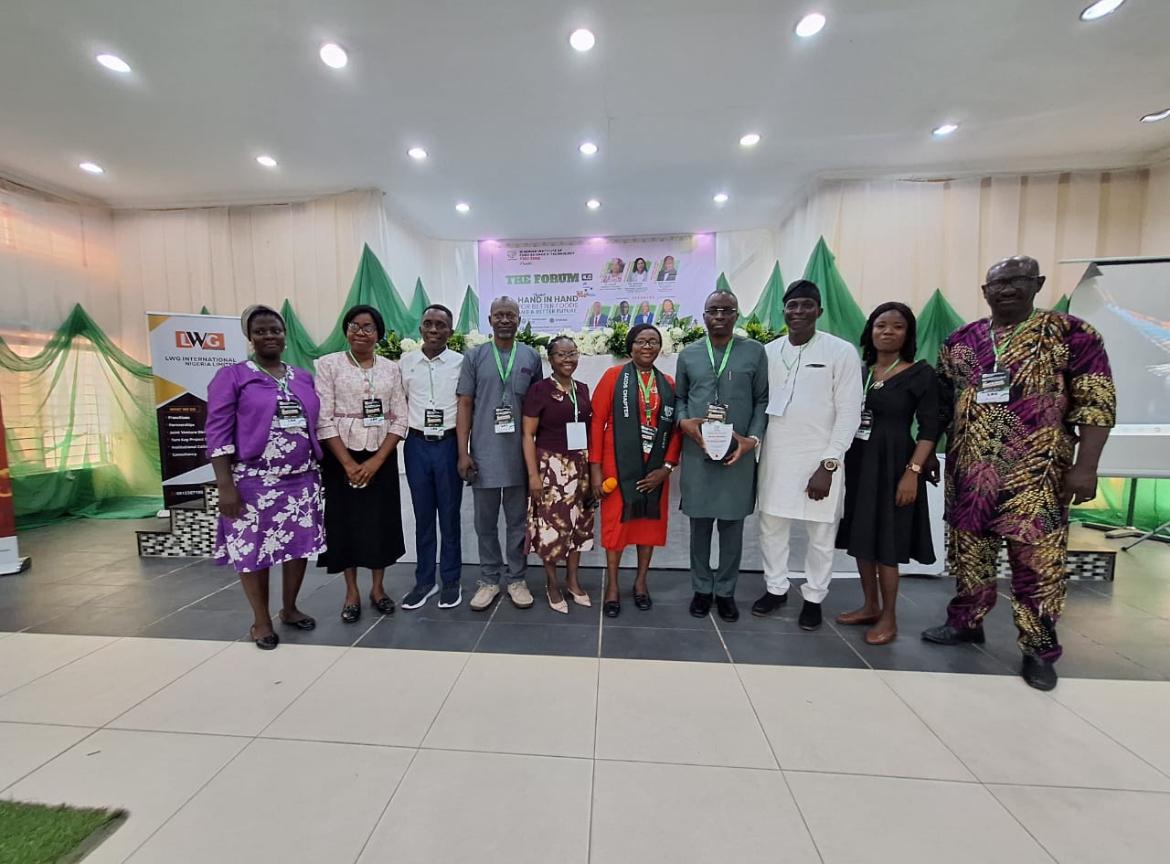By Funmilola Gboteku/Olanrewaju Akojede
Stakeholders at the Nigeria Institute of Food Science and Technology (NIFST) conference have called for stronger collaboration among government, academia and industry players to tackle food insecurity.
They said this during the NIFST (FIIRO Zone) biennial conference in Wednesday in Lagos.
The conference had the theme: “Hand in Hand for Better Foods and Better Future”.
In his opening remarks, the Chairman of the event, Mr Emmanuel Egbedeyi, the Managing Director, LWG International, said it was imperative to safeguard the future through food security.
“We as leaders, innovators, researchers, and advocates, need to be united by a shared purpose to advance the quality of our foods and secure a brighter future for generations to come.
“The theme of this forum could not be more timely or relevant as we confront global challenges such as food insecurity, climate change, and evolving nutritional needs.
“The need for collaboration across disciplines and sectors has never been greater. At this juncture, ‘Hand in Hand’ is not just a phrase, but a call to action.
“It reminds us that the journey towards safer, healthier, and more accessible foods is one we must undertake together,” Egbedeyi said.
He also stressed the need for cluster innovators to form synergies to aggregate knowledge-based solutions to ensure food security.
“We should have a unique platform for knowledge-sharing, networking, and forging new partnerships.
“We need bold ideas because Nigeria is blessed with abundant human resources that can transform not only the country but the world at large.
“We also need government intervention to bridge the gaps between research, industry, and markets for more effective efforts in the fight against food insecurity,” he added.
A lecturer from the University of Ibadan, Dr Folashade Adeboyejo, called for the preservation and commercialisation of indigenous crops.
Adeboyejo said there was a need to make concerted efforts in conserving and integrating indigenous crops for surplus and sustainability.
“The future of food security lies in research and biodiversity. We must preserve our indigenous crops, which have high nutritional values.
“In my research on the African star apple, a fruit with low market value, I developed three commercial variants such as jam, snacks, and juice which are highly nutritional.
“These products gained acceptance after being introduced to the Oyo State Governor, Seyi Makinde, and later at the African Convention in Algeria, where they sold out.
“Another underutilised fruit is the hog plum, which many consider a nuisance due to ignorance of its benefits. These are the types of crops we must preserve before they go into extinction,” she said.
Also, Dr Silvanus Ogbor of Soleta Foods Nigeria Ltd., said his company mentors young entrepreneurs to help them scale their businesses.
“I encourage people to amplify their strengths, whether as farmers, food processors, or nutritionists.
“We are not lacking in talent in this country. Individually, we have gifted and talented people. What we need is collaboration, not isolation,” he said.
Ogbor also called for more training and capacity-building initiatives to address food insecurity.
“We need to train people on how to scale up, brand, and preserve their products for export.
“Many of them do not have registered businesses. We must build their entrepreneurial mindset to help them develop local solutions for local problems.
“I have taken it upon myself to volunteer training sessions that cover branding, legal registration, and business development,” he said.
The NIFST (FIIRO Zone) Local Organising Committee Chairman, Mr Solomon Oyeniran, said the conference was centered on collaboration and shared responsibility for food security.
“We need more entrepreneurs with an entrepreneurial mindset.
“That is why we divided the conference into two sub-themes, one is focusing on startups and entrepreneurship, and the other on building resilience through biodiversity and creating nutritious foods for Nigeria.
“The forum brings people together and provides a channel for collective action,” he said.
Oyeniran added that most agropreneurs still need more training on branding and product development.
“We want them to understand the importance of branding and product quality. Many of their products need incubation to meet international standards.
“It is not just about producing food but producing quality, exportable food that contributes to shared prosperity, ” he said.
The News Agency of Nigeria (NAN) reports that the conference also featured various entrepreneurs and exhibitors who showcased their organic and agro-based products.(NAN)(www.nannews.ng)
Edited by Chinyere Joel-Nwokeoma













Your article helped me a lot, is there any more related content? Thanks!